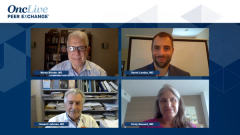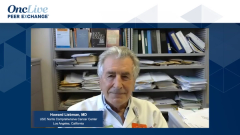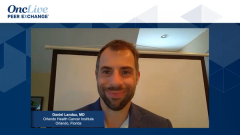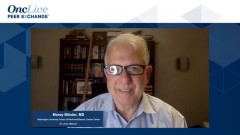
Future Directions in the Management of Immune Thrombocytopenia
Expert panelists reflect on the advent of newer therapies in immune thrombocytopenia and look toward future evolutions in care.
Episodes in this series

Transcript:
Morey Blinder, MD: Great. I think we’ve covered this topic with about as much detail as we can since these are very emerging therapies. Let me start thinking about closing this and ask everybody if they have any additional comments or other thoughts they want to share about ITP [immune thrombocytopenia] and treatment and their approach or philosophy of ITP. Why don’t we go in reverse alphabet order this time? Cindy, do you want to start?
Cindy Neunert, MD: Sure. I hope that everybody has picked up on a thread of this, which is that no 2 ITP patients are the same and there’s a lot of individualized factors that need to be considered when making treatment decisions. This is where the art of medicine comes in and it’s really coming up with an individualized treatment plan that’s going to achieve the goals and have maximum adherence from the patient.
Morey Blinder, MD: Danny, do you have any final thoughts regarding your approaches to ITP or philosophy of ITP?
Daniel Landau, MD: Yes. It is funny because I often talk with my partners and colleagues about how there’s nothing benign about benign hematology. I perhaps spend more time thinking about my “benign patients” than I do my malignant patients. It’s very complex and as rapidly evolving a field as anything that we have in the world of oncology. Just about the course of my career to have seen us be less steroid-dependent and have other drugs with more novel mechanisms of actions has been a breathtaking experience to be a part of and to have taken part in some of those clinical trials is a point of major pride. I’m very excited to see some of the drugs that have been absolute game-changers in other conditions like BTK [Bruton tyrosine kinase] inhibition or CD38-targeted therapies. I’m happy to see that these are going to make their way into the ITP world because for those subsets of patients that have suboptimal responses, we still have a way to go. I’m excited to be a hematologist. I think that there’s a lot of exciting stuff happening, and I can promise I’m never bored.
Morey Blinder, MD:That sounds great. And Howard, I don’t think you’re ever bored either. Do you want to say anything else?
Howard Liebman, MD: No. I think Cindy and Dan had it put together perfectly. It’s a great time for someone who’s been doing nothing but nonhematology but had the experience of training with some wonderful nonhematologists who told me that we’re just beginning, and they were right. As I’m looking to the future, I’m trying to figure out what I’m going to do for those last years of my practice here. I think there’s a new generation of younger people that I’m training and working with and my colleagues are excellent. And so, I’m just excited about what’s happening, and we’ll see. We should do this again in five more years, if we could still talk and speak and I bet it’ll be a different talk.
Morey Blinder, MD:I think that’s right. I think the quality of the data coming out too is so much beyond what we saw with Cytoxan or vincristine or danazol; things that were tried decades ago, so it’s exciting to do this. I’m honored to be part of this discussion. And I would just say, I feel like I had some destiny to do this because my office is in the wall hospital building. If any of you are familiar with Washington University, the building is 75 years old, and it’s where [William J.] Harrington [, MD,] had an office and it is his original experiments injecting plasma from a patient into his coworkers, including the chief of medicine. ITP has a long and rich history at Washington University. On that note, I would like to close and thank everybody so much for participating and sharing so many wonderful thoughts, anecdotes, and reviews of the data and all the information that we shared today. Thank you so much.
Transcript edited for clarity.









































